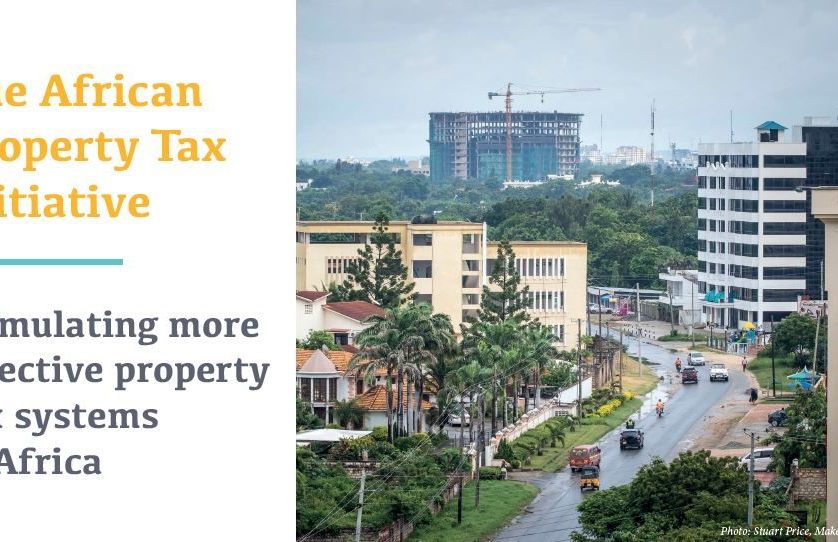Following renewed funding from the Bill & Melinda Gates Foundation and DFID, the African Property Tax Initiative (APTI) is pleased to announce a second call for proposals for research projects on property taxation that are of a high academic standard and relevant to policy and practice.
We are calling for proposals on APTI’s six core themes:
- The use of information and communication technology in property tax collection;
- Deepening understanding of diverse approaches to property valuation;
- The relationship between local and central governments in property tax administration;
- Linking property taxation to public services and accountability;
- Strengthening the effectiveness and equity of enforcement; and
- Exploring links between taxation and land titling.
And on a subset of two priority research areas identified by partner countries in our first phase:
- Strengthening the effectiveness and equity of enforcement: Among the most surprising and troubling features of property tax systems across the continent is the presence of extensive unpaid arrears, rooted in weak enforcement of existing rules. This is particularly surprising given that enforcement should, in principle, be relatively straightforward given that properties are both highly visible and immovable, and thus, technically speaking, easily taxed. Weak enforcement is also pivotally important: in the absence of effective enforcement, improvements in property identification, valuation and billing are unlikely to substantially improve outcomes. Existing research has pointed to the roles of political resistance and weak court systems in explaining the weakness of enforcement activities. This call for research seeks to move that research agenda forward by focusing in greater detail on the details of weak enforcement regimes, the factors underpinning that weakness and potentially successful strategies for strengthening enforcement efforts.
- Effective taxation where information on property ownership is incomplete or imperfect: In many countries tax laws expressly require that property taxes be levied on property owners, that is, persons with established de jure ownership or land titles. However, this raises major practical hurdles, as it is then necessary to identify and register property owners before taxes can be levied on the property – a process that is notoriously difficult in many African countries, where property registers are often incomplete, the acquisition of land titles is arduous, and proof of legal ownership is never straightforward. Considering the need for expanded revenues, researchers and practitioners are increasingly questioning whether this titling-led approach is logical in the current African context, or whether there should be a sharper focus on identifying pragmatic approaches to expanding taxation even in the absence of full property registers. One option is to effectively levy the taxes on the property itself, such that where ownership is contested or owners cannot be identified, the tax can be levied on property tenants, and then deducted from the rent due to owners. Other approaches might similarly be effective. This call for research is focused on soliciting projects that can either provide highly detailed empirical analysis of challenges associated with property taxation of owners, or which can provide analysis of alternative strategies for improving outcomes.
We welcome projects that combine themes and from all disciplines, including economics, law, and political science. We encourage proposals that involve collaborative research teams comprising researchers based in Africa and/or involving close engagement with governments (revenue or other public agencies). Research outputs should contribute towards APTI’s mission of supporting its partners and governments in their efforts to strengthen property tax systems on the continent. Therefore, it is essential for research proposals to have a clearly defined and specific focus, and be rooted in a clear understanding of key policy and implementation challenges in Africa (our APTI research papers and policy briefs can provide useful guidance to some of the issues).
Submission process
In order to apply for funding, please fill out this initial proposal form. Please answer each question briefly and clearly, including the following:
- Identify and explain a clear central question, or set of related questions
- Indicate an estimated timeline for your project (ideally to be completed within 12 months, while longer periods may be exceptionally approved);
- Specify the data needed to persuasively answer the question(s)
- Explain how the necessary data or information will be accessed or gathered
- Explain how the data will be used to answer the question(s)
- Provide a budget estimate
- Upload the CVs of the researchers and any other supporting documents.
Proposals that include all the required elements will be given priority during the shortlisting process. Shortlisted projects will then be invited to provide a more detailed, full proposal.
For questions relating to this call, please contact [email protected]



